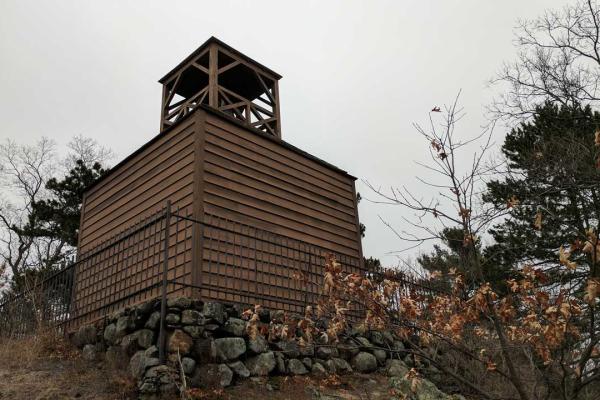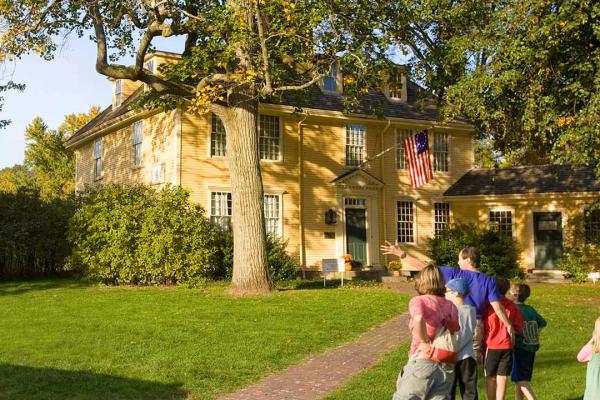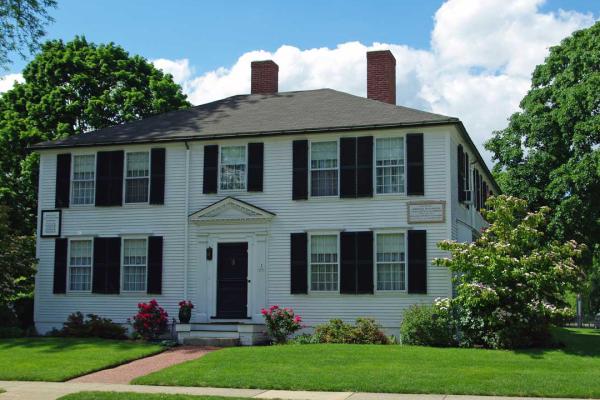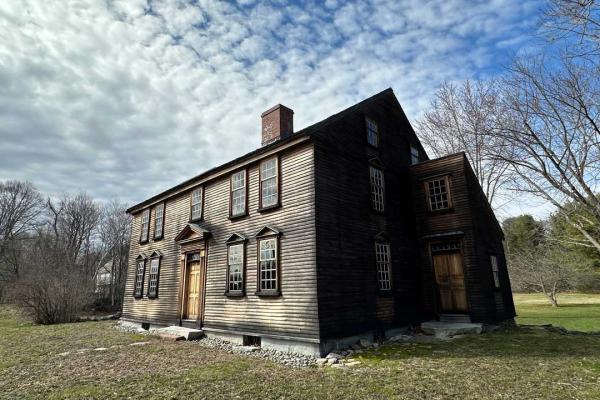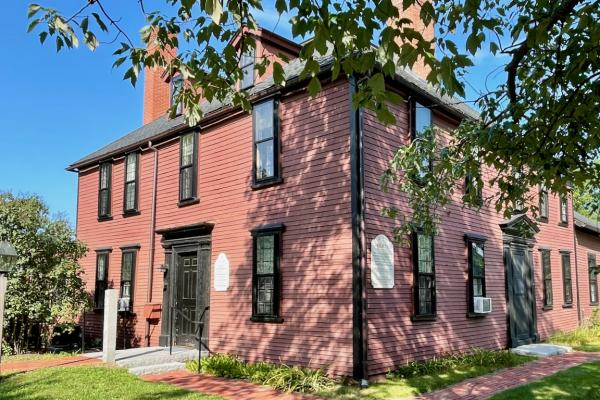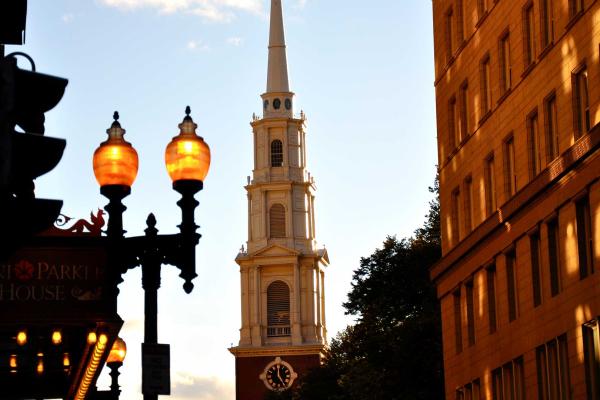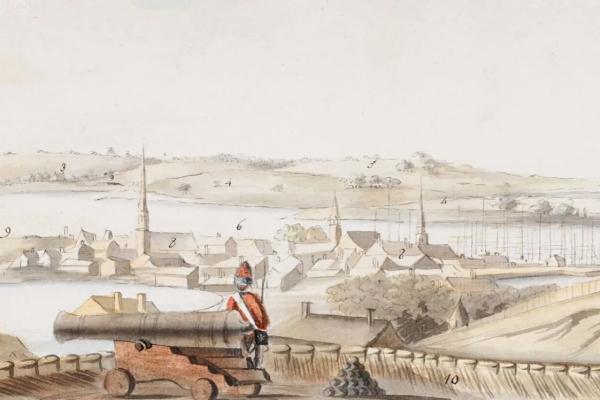The Munroe Tavern was originally built in 1735 by David Comee. William Munroe acquired the building in the 1770s, and in October 1774, he received permission to operate a tavern. When word of the engagement between British troops and colonial militia reached Boston, British officer Hugh Percy led a relief force of one thousand British soldiers to reinforce the column retreating from Concord. Percy and his officers occupied the Munroe Tavern, using it as a headquarters and a field hospital for wounded British troops. After more than an hour, the British withdrew back towards Boston. In 1789, newly elected President George Washington visited the Munroe Tavern while on a trip to see the Lexington battlefield.
Today, the Lexington Historical Society uses the Munroe Tavern to tell the story of the battles of Lexington and Concord from the perspective of the British troops who participated. It also displays objects used by President Washington during his visit. Nearby, visitors can explore the Lexington Battle Green, Buckman Tavern, and the Hancock-Clarke House, all of which offer insights into the early moments of the American Revolution.
What's Nearby
Explore more of The Liberty Trail by visiting these nearby attractions.
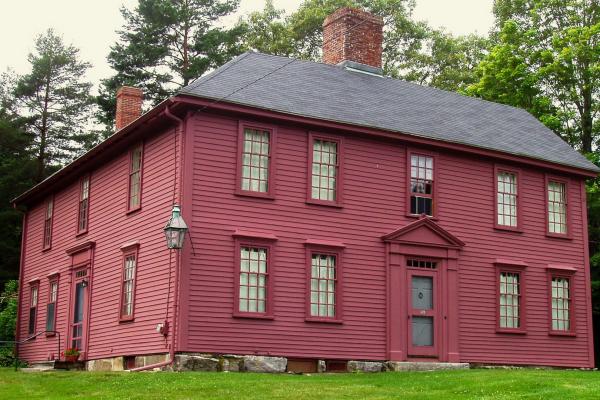
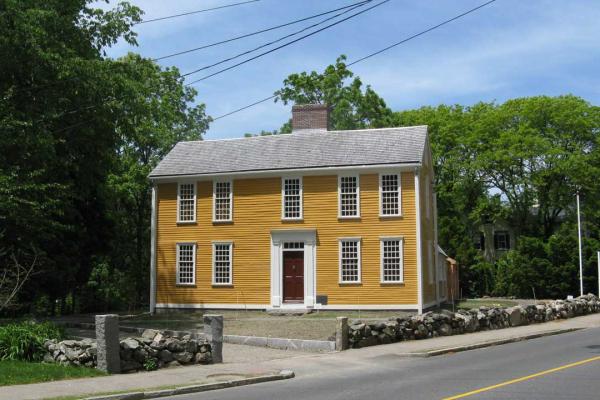
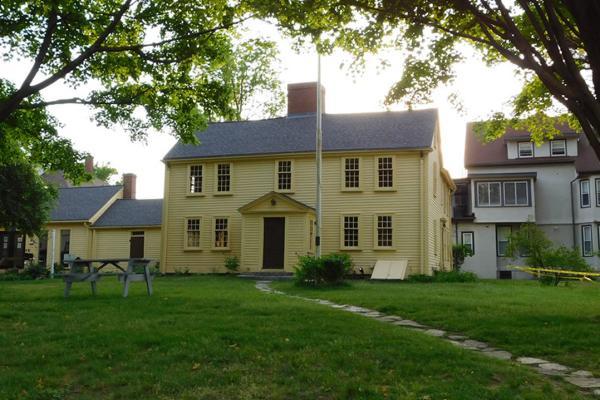
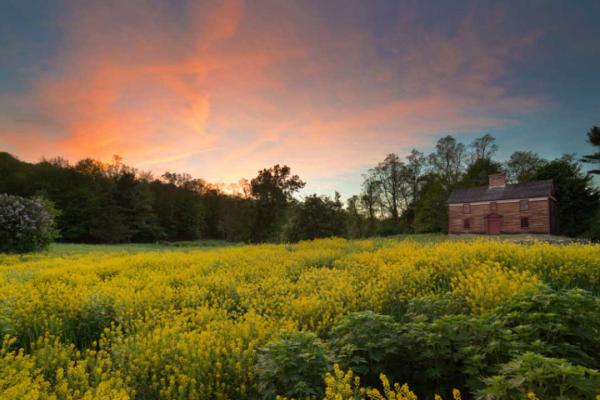
Lincoln, MA 01773
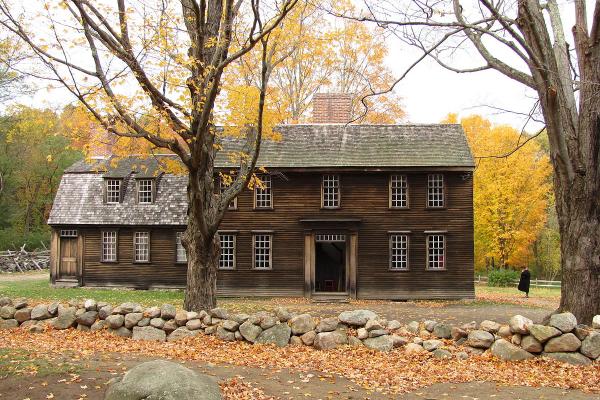

Waltham, MA 02453
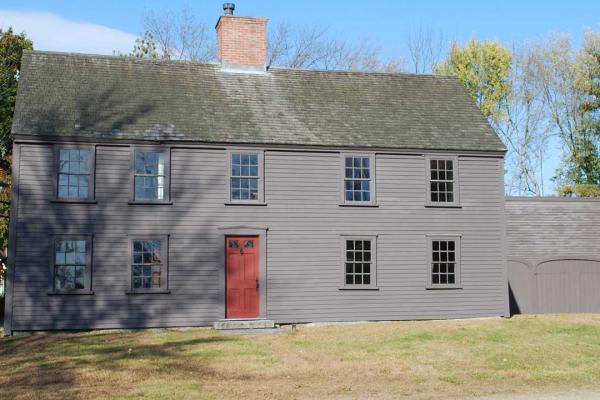

Watertown, MA 02472
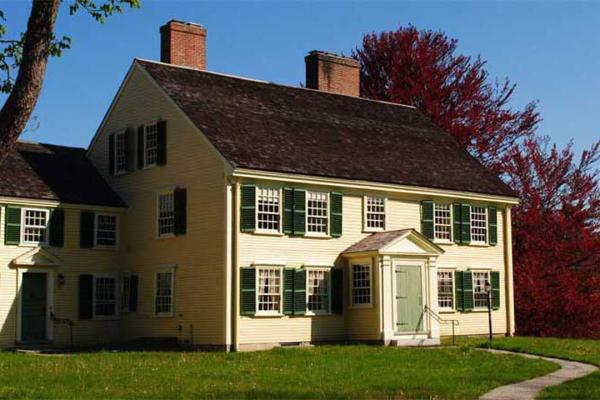
Concord, MA 01742

Weston, MA 02493

Cambridge, MA 02138
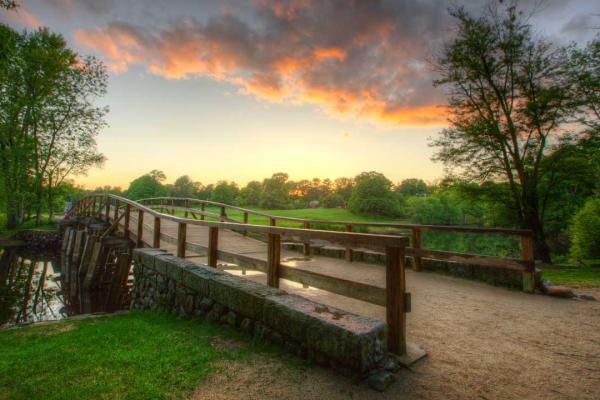
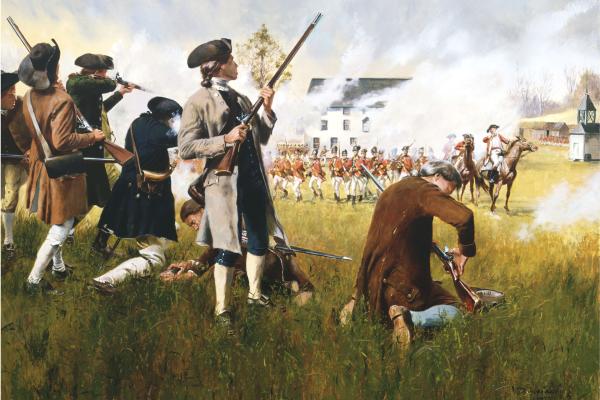
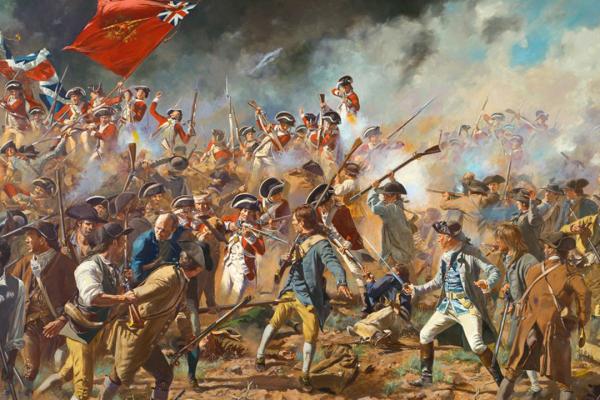

Wayland, MA 01778
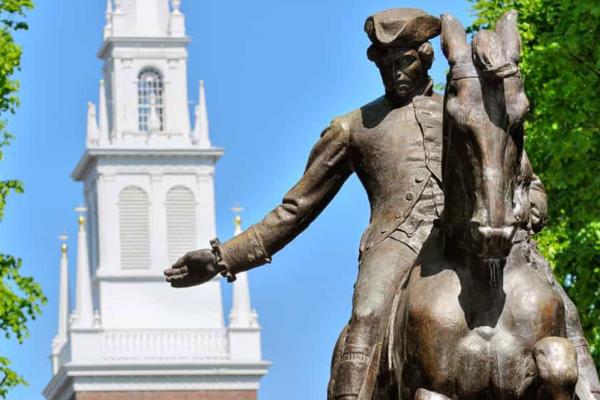
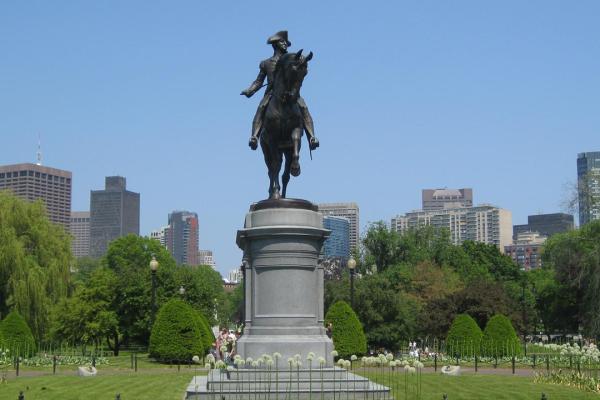
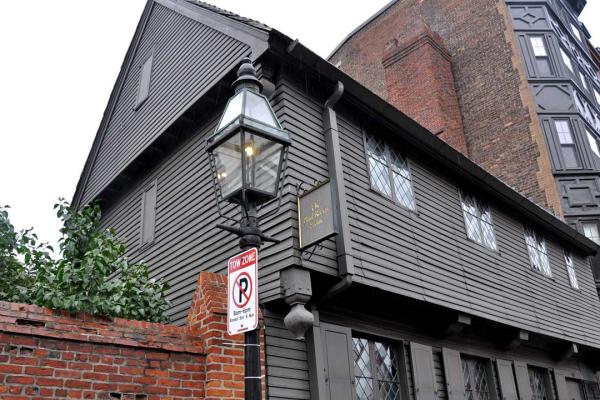
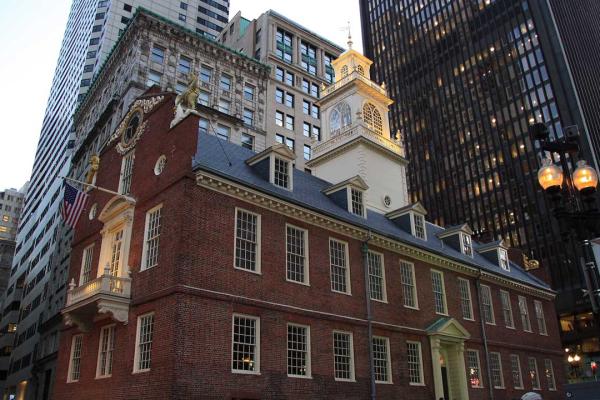


Roxbury, MA 02119


Boston, MA 02127

Way, MA 01778

Framingham, MA 01702

Marlborough, MA 01752
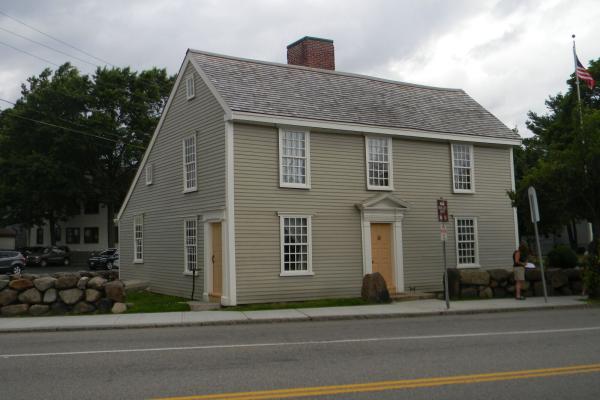

Brookfield, MA 01506

Southborough, MA 01772

